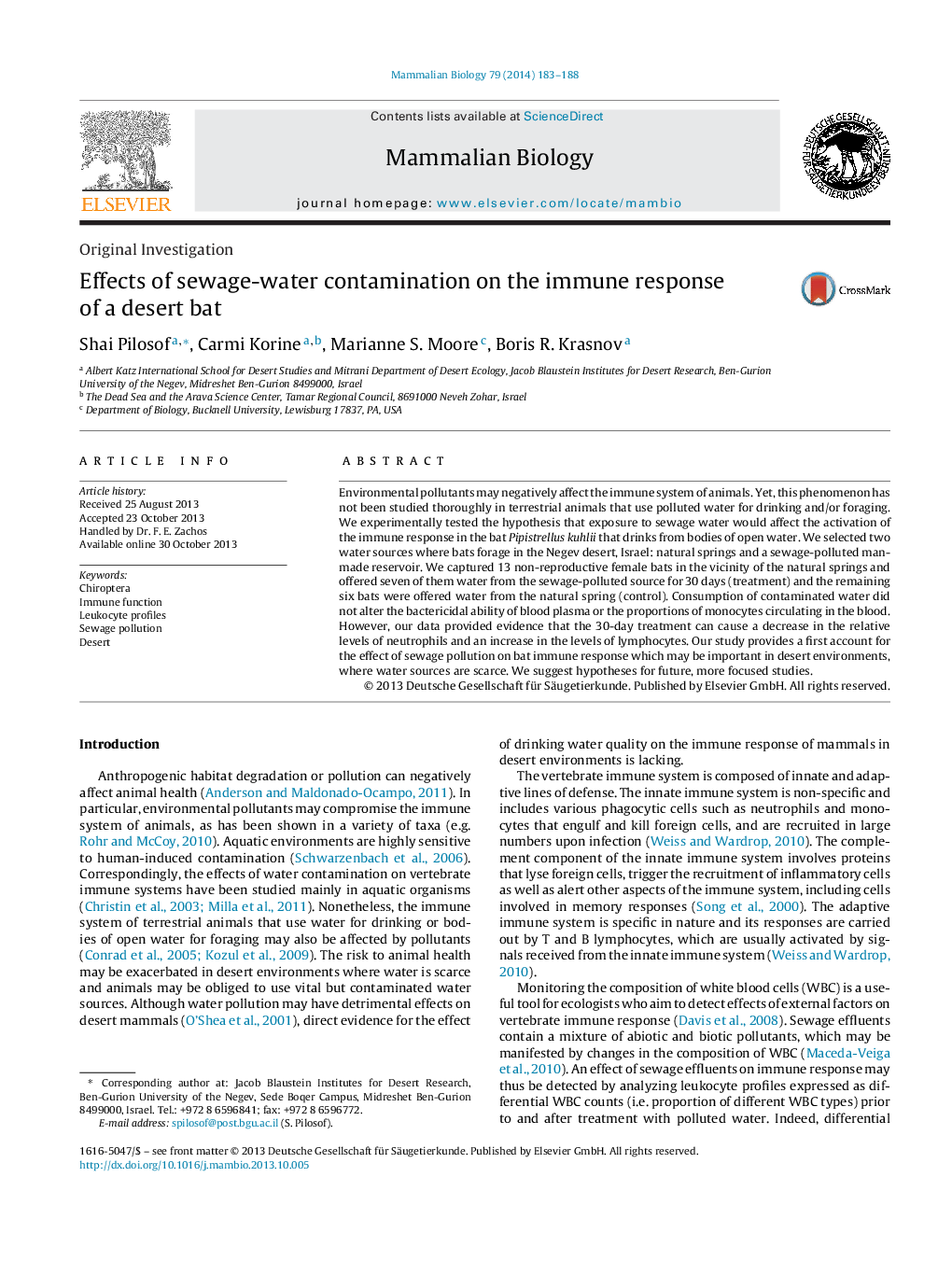| Article ID | Journal | Published Year | Pages | File Type |
|---|---|---|---|---|
| 2193543 | Mammalian Biology - Zeitschrift für Säugetierkunde | 2014 | 6 Pages |
Environmental pollutants may negatively affect the immune system of animals. Yet, this phenomenon has not been studied thoroughly in terrestrial animals that use polluted water for drinking and/or foraging. We experimentally tested the hypothesis that exposure to sewage water would affect the activation of the immune response in the bat Pipistrellus kuhlii that drinks from bodies of open water. We selected two water sources where bats forage in the Negev desert, Israel: natural springs and a sewage-polluted man-made reservoir. We captured 13 non-reproductive female bats in the vicinity of the natural springs and offered seven of them water from the sewage-polluted source for 30 days (treatment) and the remaining six bats were offered water from the natural spring (control). Consumption of contaminated water did not alter the bactericidal ability of blood plasma or the proportions of monocytes circulating in the blood. However, our data provided evidence that the 30-day treatment can cause a decrease in the relative levels of neutrophils and an increase in the levels of lymphocytes. Our study provides a first account for the effect of sewage pollution on bat immune response which may be important in desert environments, where water sources are scarce. We suggest hypotheses for future, more focused studies.
